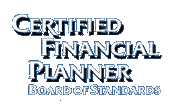 Graduate
School of Business
Curriculum
Graduate
School of Business
Curriculum
 Graduate
School of Business
Curriculum Graduate
School of Business
Curriculum
|
|
MBA Core Curriculum | Specializations & Tracks | Certificate Programs | |
Graduate Business Specializations & Tracks
 All specializations and tracks within the MBA
Program will consist of the basic core as listed above (28 credits) and
specialization electives (12 credits). The student may elect to take all
electives within a single area or take and interdisciplinary approach and take
electives in more than one area. In order to received certification in a
track, all coursework must be completed with no grade less than a
"B-," and an average of 3.0 for the 12 credits of the track.
All specializations and tracks within the MBA
Program will consist of the basic core as listed above (28 credits) and
specialization electives (12 credits). The student may elect to take all
electives within a single area or take and interdisciplinary approach and take
electives in more than one area. In order to received certification in a
track, all coursework must be completed with no grade less than a
"B-," and an average of 3.0 for the 12 credits of the track.
Specializations are offered in the following areas:
- Accounting
- Electronic Commerce
- Finance
- Financial Planning
- International Business (separate from the Master of Science in International Business)
- Global Entrepreneurship
- Health Administration
- Marketing
- Operations Management
- Real Estate
- Sport Management
The MBA Accounting Track students must meet the same general admission criteria as Master of Accounting students and be approved by the School of Accounting for inclusion in the track, as well as be approved in the MBA Program. The MBA Accounting track student must substitute ACG 6135 for ACG 6085 and ACG 6475 for ISM 6026. Electives will be in 6000-level Accounting courses for which prerequisites have been met. Accounting courses at the 5000 level are unacceptable in the MBA Program.
In addition to its traditional classroom MBA in Accounting program, the School of Accounting also offers the following programs. Please click on each link for more information:
Electronic Commerce Track
Students electing the Electronic Commerce track will take the basic core courses listed above and the following:
- ISM 6237 Electronic Commerce and Internet Business Applications
and any three courses from the following list:
- COP 6710 Generalized Database Management Systems
- ISM 6227 Telecommunications for Electronic Commerce
- MAR 6726 Electronic Marketing on the Internet / World Wide Web
- ISM 6366 Knowledge Management and Information Technology
Students electing the Finance Track will take the basic core courses and any of the following four courses:
FIN 6246 Finance Markets
FIN 6436
FIN 6537
FIN 6605 Multinational Finance
FIN 6515
REE 6305 Real Estate Investment Analysis
FIN 6936 Special Topics
 An MBA with Financial
Planning Track can open the door to a challenging and rewarding career within
the financial services industry. An MBA from Florida Atlantic University,
coupled with the CERTIFIED FINANCIAL PLANNER™ certification is a winning
combination that will increase your marketability to prospective employers.
The demand for financial planning services and particularly planners with the
CFP™ certification continues to grow at a rapid pace as life spans become longer,
government support programs continue to shrink and/or become needs-based, and
the number and complexity of financial products available to consumers continues
to grow.
An MBA with Financial
Planning Track can open the door to a challenging and rewarding career within
the financial services industry. An MBA from Florida Atlantic University,
coupled with the CERTIFIED FINANCIAL PLANNER™ certification is a winning
combination that will increase your marketability to prospective employers.
The demand for financial planning services and particularly planners with the
CFP™ certification continues to grow at a rapid pace as life spans become longer,
government support programs continue to shrink and/or become needs-based, and
the number and complexity of financial products available to consumers continues
to grow.
Recognizing these trends, retail brokerage firms and financial service firms including banks are continuing to shirt away from product specific sales commissions to all encompassing financial plans where a variety of products can be bundled together in the form of Money Under Management. Increasing numbers of brokers and other professionals in the financial service industry are obtaining the CFP certification to accommodate their client's needs and more CFP licensees are being hired by these firms as well as traditional financial planning firms. Having both an MBA and the CFP certification will greatly enhance your job prospects and your ability to advance in your current position within the financial services industry.
Career Opportunities
More and more, employers of MBA's are being very selective in the specific training and experience they require from their newly hired MBA's, expecting them to arrive on the job with specialized skills. Working closely with business, Florida Atlantic University is continuing to offer enhanced MBA degree options and concentrations to better train students to meet the specific needs of business. The MBA with Financial Planning Track is one of these options that is designed to fill a niche area that is expanding in South Florida and the United States by providing the MBA student a thorough background in the concepts and applications of personal financial planning.
Traditional MBA's are employed in a wide variety of businesses including accounting, commercial banking, management consulting, consumer products, health care, insurance, and services companies. In these jobs, the specific job function of the MBA includes marketing, finance, operations, information systems, and long-term planning. By comparison, many CFP™ practitioners are self-employed in private practice by themselves or with other planners. Still other CFP licensees work for a variety of businesses as they form long-term relationships with their clients, mapping our and implementing strategies to achieve their client's financial goals. These businesses include banks, credit unions, insurance companies, accounting and law firms, credit counseling organizations and brokerage firms. The MBA degree with the CFP certification is an attractive combination that opens a board spectrum of potential employment opportunities.
Registration with the CFP Board and Accreditation
 The MBA Degree Program with
Financial Planning Track is registered with the Certified Financial Planner
Board of Standards in Denver, Colorado. The CFP Board is an independent
professional organization that establishes and enforces education, examination,
experience and ethics requirements for CFP licensees. The CFP
certification
is at the forefront of the financial planning profession and has become the most
widely recognized financial planning credential among consumers in the United
States. In a 1996 survey conducted by the Survey Research Laboratory at
Florida State University, more than 60% of investors recognized the CFP mark
making it one of the most recognized certifications in the field. Upon
completion of the required coursework outlined below, students are eligible to
sit for the CFP™ Certification Examination. Completing the financial planning coursework,
passing the CFP™ Certification Examination, financial planning related work experience, and
adherence to the CFP Board's Code of Ethics and Professional Responsibility are
the four requirements needed to obtain the CFP certification.
The MBA Degree Program with
Financial Planning Track is registered with the Certified Financial Planner
Board of Standards in Denver, Colorado. The CFP Board is an independent
professional organization that establishes and enforces education, examination,
experience and ethics requirements for CFP licensees. The CFP
certification
is at the forefront of the financial planning profession and has become the most
widely recognized financial planning credential among consumers in the United
States. In a 1996 survey conducted by the Survey Research Laboratory at
Florida State University, more than 60% of investors recognized the CFP mark
making it one of the most recognized certifications in the field. Upon
completion of the required coursework outlined below, students are eligible to
sit for the CFP™ Certification Examination. Completing the financial planning coursework,
passing the CFP™ Certification Examination, financial planning related work experience, and
adherence to the CFP Board's Code of Ethics and Professional Responsibility are
the four requirements needed to obtain the CFP certification.
The College of Business at Florida Atlantic University is fully accredited by the American Assembly of Collegiate Schools of Business (AACSB). It is one of only approximately 115 business programs in the United States accredited by the AACSB at all levels: bachelors, masters and doctorate.
The Financial Planning Track Coursework
FIN 6515 Investment Management ~ Prerequisites: Good graduate standing and permission from instructor ~ Current problems in investments. It analyzes financial reports and movements of security prices and emphasizes quantitative methods of portfolio selection. It is also an introduction t investment model building.
TAX 6025 Concepts of Federal Income Tax ~ Prerequisites: Graduate Standing ~ Analysis of the principles of the Federal Income Tax; the relationship among statutes, case law, Congressional committee reports, and administrative pronouncements are emphasized; a case approach is used.
TAX 6405 Estates and Trusts: Planning and Taxation ~ TAX 6025 or TAX 6065 ~ An examination of the principles of estate tax, gift tax, and income tax fiduciaries, beneficiaries, grantors, and other parties; Income with respect to descendants, grant or reversionary trusts, accumulation distributions, and other special problem areas are studied.
RMI 6016 Principles of Insurance ~ Prerequisites: Good graduate standing ~ An introduction to risk management and insurance; This course surveys various risks and policy options including homeowners, auto, fire, marine, liability, life, health, employee benefits, social, and business; Analytical methods of risk management will also be covered.
FIN 6150 Advanced Financial Management for Financial Planners ~ Prerequisites: TAX 6025, 6405 and RMI 6016 ~ A capstone course covering the practice and implementation of personal financial planning with emphasis on casework in budgeting and saving, risk management, retirement and employee benefit plans, estate planning, tax planning and investment planning.
Foundation Component and Courses
The foundation component introduces the broad field of business administration and the fundamental quantitative techniques used in business analysis. Courses in the Foundation Component are:
| Course | Course Number | Credits |
| Financial Aspects of Accounting | ACG 6027 | 3 |
| Financial Management | FIN 6406 | 3 |
| Marketing Functions and Processes | MAR 6055 | 3 |
| Modern Economic Concepts and Theories | ECO 6008 | 3 |
| Total: | 12 |
Core Component and Courses
The Core Component consists of required graduate business courses that extend the basic background in the Foundation Component. These courses include:
| Course | Course Number | Credits |
| Graduate Business Communications Applications | GEB 6215 | 3 |
| Advanced Analysis of Accounting Data | ACG 6085 | 3 |
| Investment Management | FIN 6816** | 3 |
| Global Environment of Management | MAN 6937 | 3 |
| Strategic Concepts in Marketing | MAR 6716 | 3 |
| Information Systems | ISM 6026 | 3 |
| Organizational Behavior | MAN 6151 | 3 |
| Operations Management | MAN 6501 | 3 |
| Global Management Strategy and Policy | MAN 6721 | 3 |
| Core Total | 27 |
**In the MBA Personal Financial Planning Track, FIN 6816, Investment Management, will be substituted for FIN 6806.
FAU MBA Degree Program with Financial Planning Track Advisory Board
| Scott W. Barnhart, Ph.D. | Associate Professor of Finance | Florida Atlantic University |
| Robert Friedman, CLU | Managing Director | Prudential Insurance |
| Robert Levitt, CFA, CFP | Principal | Levitt Capital Management |
| Jay L. Shein, Ph.D., CFP | President and CEO | Compass Financial Group, Inc. |
| Deidre S. Waltz, CFP | President | South Florida Society of the ICFP |
| Marilyn K. Wiley, Ph.D., CFA | Associate Professor of Finance and Director of Graduate Programs | Florida Atlantic University |
Admission Requirements
Admission to the MBA program at FAU requires and undergraduate grade point average of 3.0 or better in the last sixty hours of coursework leading to the degree. The Graduate Management Admissions Test is also required, with a score of 500 or better. Students who are close to these requirements may be considered for probationary admission.
Application Procedures
Visit the FAU website at http://www.fau.edu and select ADMISSIONS and then GRADUATE ADMISSIONS for access to an on-line application or simply call (561) 297-3650 for more information.
"Florida Atlantic University does not certify individuals to use the CFP™, CERTIFIED FINANCIAL PLANNER™, and "CFP (with flame logo)®" certification marks. CFP certification is granted only by the Certified Financial Planner Board of Standards to those persons who, in addition to completing an educational requirement such as this CFP Board-Registered Program, have met its ethics, experience and examination requirements."
Students in the International Business Track will take the basic core courses as listed above. The international component consists of four electives courses within the three blocks. Students must take one course from each block. The fourth course may be chosen from any block with a limit of 3 credits for GEB 6365, International Field Experience.
BLOCK #1 consists of the following:
- ECO 6706 Advance International Trade OR
- ECO 6716 Advanced International Monetary Economics OR
- FIN 6605 Multinational Finance
BLOCK #2 consists of the following:
- MAN 6614 International Business Operations OR
- MAN 6728 Managing Effectively in Emerging Economies OR
- MAR 6158 Global Marketing Management; or a cross-cultural course that has been approved by the graduate advisor
BLOCK #3 consists of the following:
- ACG 6275 International Accounting OR
- GEB 6365 International Field Experience (research on, and travel to, a foreign country) or an additional course from Blocks 1 or 2.
Students in the Entrepreneurship Track will take the basic core as listed above. The Entrepreneurship component consists of four elective courses as follows:
- MAN 6804 Seminar in Entrepreneurship/Venture Management
- MAN 6XXX Entrepreneurial Skills for Managers
- MAN 6936 Entrepreneurial Consultancy AND
- FIN 6605 Multinational Finance OR
- MAN 6615 Managing Effectively in Emerging Market Economies OR
- MAN 6931 Special Topics (Special Topics classes must be approved in advance)
Students in the Health Administration Track will take the basic core as listed above and four elective courses as listed below:
- HSA 6146 Health Policy
- HSA 6420 Health Law
- HSA 6107 Healthcare Management I
- HSA 6108 Healthcare Management II
- Special Topics - may be taken with approval
Students electing the Operations Management Track will take the basic core and the following courses listed below:
MAN 6525 Quality Management
MAN 6526 Operations Planning & Control
Students must also take two classes from the following list:
QMB 6603 Data Analysis for Managers
QMB 6755 Operations Research
MAN 6757 Forecasting Models
MAR 6456 Advanced Industrial Marketing
ECP 6405 Advanced Industrial Economics
MAR 6706 Marketing Analysis and Executive Action
ISM 6026 Information Systems
Special Topics - may be taken with approval
Students electing the Real Estate Track will take the basic core courses and four elective courses as follows:
One of the following:
REE 6207 AND REE 6305
Plus one course from the following:
- FIN 6246 Finance Markets
- FIN 6314 Financial Management of Financial Institutions
- REE 6015 Advanced Real Estate Valuation
- MAN 6804 Seminar in Entrepreneurship/Venture Management
And one course from the following:
- FIN 6515
- MAN 6727 Analysis of the Firm
- GEB 6146
- GEB 6509
- GEB 6608
- URP 6231 Site Planning
- URP 6300 Urban Development and Design
- URP 6741 Seminar in Housing
- FIN 6246 Finance Markets
- FIN 6314 Financial Management of Financial Institutions
- REE 6105 Advanced Real Estate Valuation
- MAN 6804 Seminar in Entrepreneurship / Venture Management
Once a student is accepted to the
general FAU MBA, they must make formal application to MBASport. This is done by
contacting the program director and setting up an interview. A personal essay
stating your reasons why you desire to enter MBASport and procure a career in
Sport Management. It should be made clear that acceptance into the general FAU
MBA program does not imply automatic acceptance into MBASport. While a business-orientated
undergraduate degree is preferred, all applications from candidates holding a
bachelors degree from a properly accredited college or university will be
considered. Special consideration will not be given to those applicants who
possess a bachelors degree in sport management, sport marketing, sport studies,
sport administration, etc. Such degrees will not hurt the applicants chances for
admission; but they will not move the applicant to "the head of the
line". All applicants should be "computer literate".
While a business-orientated
undergraduate degree is preferred, all applications from candidates holding a
bachelors degree from a properly accredited college or university will be
considered. Special consideration will not be given to those applicants who
possess a bachelors degree in sport management, sport marketing, sport studies,
sport administration, etc. Such degrees will not hurt the applicants chances for
admission; but they will not move the applicant to "the head of the
line". All applicants should be "computer literate".
| News & Information | ||||